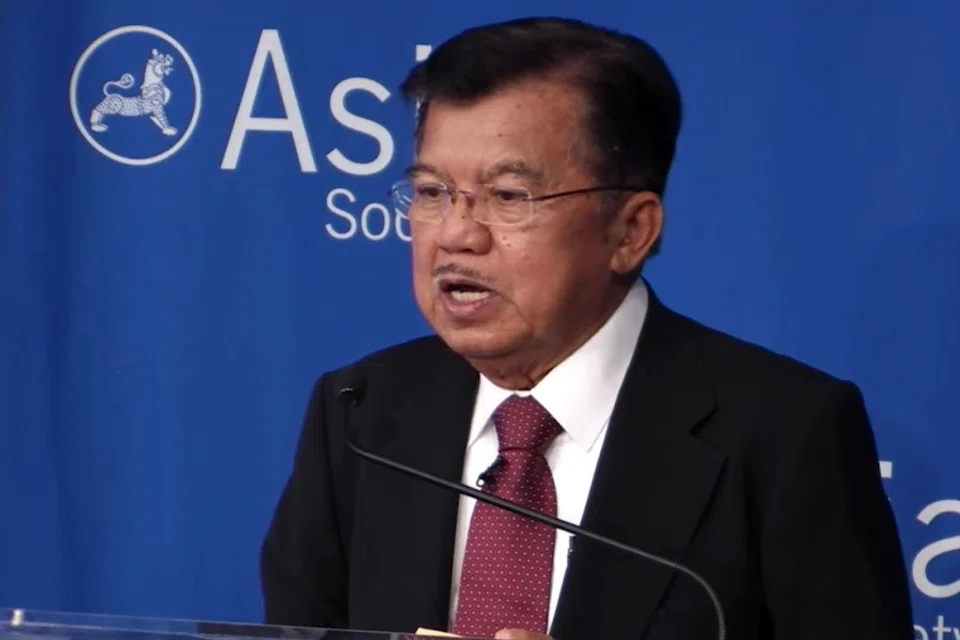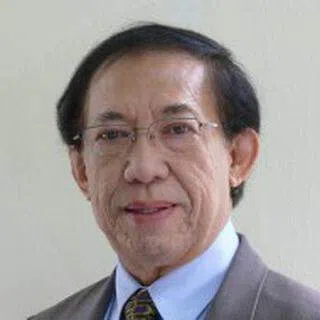Anti-Chinese comments by former Indonesian Vice-President Jusuf Kalla spark different reactions
Former Indonesian Vice-President Jusuf Kalla claimed that Chinese people control the Indonesian economy, given their involvement in business and trade. Is there anything to back up the statement, or is it a show of racism, intended to stir anti-Chinese sentiment in Indonesia?

On 12 May, at an event organised by the Indonesian Association of Muslim Intellectuals (Ikatan Cendekiawan Muslim Indonesia, ICMI), former Indonesian Vice-President Jusuf Kalla expressed his views on Chinese people controlling the Indonesian economy, which was reported by newspapers and social media platforms in Indonesia, with the potential to fuel racial tensions in Indonesia.
Kalla said, "In Pakistan, the richest are Pakistanis, and the same goes for Arabs; in Turkey, nine out of ten people are Turks. It is only in Indonesia that the situation is different."
He went on to say that the Chinese population in Indonesia accounts for 4.5% of the total population but controls over 50% of the country's economy, and that the economic power of this minority group is ten times greater than their proportion in the population.
Although Chinese Indonesian citizens are Indonesian by nationality, Kalla insisted that they are not "Indonesians" or "members of the Indonesian nation".

He added that in neighbouring Malaysia, the Chinese population accounts for 30% of the total population and controls 60% of the Malaysian economy. However, he said the Chinese population in Malaysia is proportionally larger, and their economic power is only twice as much as their population.
Hoping for more 'Indonesians' to become entrepreneurs
Kalla said entrepreneurs can drive Indonesia's national economy (ekonomi bangsa), but there are relatively few "Indonesian" (warga Indonesia) entrepreneurs, and he hoped more "Indonesians" would be willing to become entrepreneurs to compete with the Chinese.
It should be noted that "warga Indonesia" has two meanings in Indonesia: one is "Indonesian citizens", while the other is "Indonesians" or "members of the Indonesian nation". Although Chinese Indonesian citizens are Indonesian by nationality, Kalla insisted that they are not "Indonesians" or "members of the Indonesian nation".
However, Kalla also said: "Of course, the Chinese are our friends, and they are important. They pay taxes and create employment opportunities. But this is our biggest challenge. This phenomenon is not their fault. It is because of our own shortcomings, so it is a significant challenge for us to cultivate entrepreneurs. The biggest challenge in Indonesia is the lack of business talent."
Kalla's conglomerate controls economy of South Sulawesi
Kalla talking about Chinese people controlling the Indonesian economy at the ICMI event is clearly a deliberate attempt to incite anti-Chinese sentiment in Indonesia. And by excluding Chinese Indonesians as "Indonesians", he seems to imply that only so-called indigenous people are "Indonesians".
His business empire covers eight sectors and over 20 commercial projects, including automobiles, construction, energy, transportation, real estate, retail, finance, and forestry, effectively controlling the economy of South Sulawesi.

Jusuf Kalla was born in 1942 in South Sulawesi and studied economics at a local university. As a student, he joined the Muslim University Student Association (Himpunan Mahasiswa Islam, HMI) of South Sulawesi Branch and served as its chairman. After graduation, he became the chairman of the local Association of Economics Graduates (ISEI). His father, Hadji Kalla, was a businessman who established NV Hadji Kalla, which Jusuf later took over. And even as he engaged in business, Jusuf also ventured into politics and supported Suharto.
Kalla served as a local parliament member for many years and later became a member of the People's Consultative Assembly, representing Golkar. After Suharto's downfall, he was elected as the chairman of Golkar Party; he was briefly the minister of industry and trade in the Wahid Cabinet and later the coordinating minister for people's welfare in the Megawati Cabinet.
Jusuf Kalla inherited his father's business and grew it into a conglomerate, the Kalla Group, becoming one of the wealthiest ethnic Bugis businessmen in modern times.
Internet celebrity and former senior lecturer with the Department of Mass Communication at the University of Indonesia Ade Armando said Kalla is regarded as the "king" (raja) of South Sulawesi. His business empire covers eight sectors and over 20 commercial projects, including automobiles, construction, energy, transportation, real estate, retail, finance, and forestry, effectively controlling the economy of South Sulawesi.
Kalla served two non-consecutive terms as vice-president of Indonesia under the Yudhoyono Cabinet (2004-2009) and the Jokowi Cabinet (2014-2019), both of whom dropped him after only one term.
He also said the Chinese community deserved anti-Chinese sentiment in Indonesia. As vice-president, he toned down a little, only to revert to his previous stance on stepping down.

Before he became vice-president, Kalla often accused the Chinese community in Indonesia of controlling the country's economy, leading to uneven distribution of wealth, which had to be rectified. He also said the Chinese community deserved anti-Chinese sentiment in Indonesia. As vice-president, he toned down a little, only to revert to his previous stance on stepping down. Most Chinese Indonesians have a negative impression of him.
Kalla has close ties with Islamic groups. In the 2017 Jakarta gubernatorial election, he played "identity politics" as he openly supported Anies Baswedan, a candidate favoured by radical Islamic groups, against the incumbent Christian-Chinese candidate Basuki Tjahaja Purnama (known as Ahok), while still Jokowi's deputy.
In 2020, when no longer vice-president, Kalla became even less restrained. At that time, Rizieq Shihab, the self-exiled leader of the Islamic Defenders Front (Front Pembela Islam, FPI), returned to Indonesia to make a comeback. Kalla openly supported Rizieq in a television interview of the Prosperous Justice Party (Partai Keadilan Sejahtera, PKS), saying that Indonesia currently lacked exceptional leaders, praising Rizieq as a charismatic leader.
Suharto appointed former President Habibie to establish ICMI, to gain support from the Muslim elite, which means it was supported by Suharto. And as most Chinese Indonesians are not Muslims, there would be a lot of support within such an organisation for talk of Chinese people controlling Indonesia's economy.
There is no academic basis for Kalla's claim of Chinese people controlling the Indonesian economy...
Kalla does not consider the Chinese as Indonesians
There is no academic basis for Kalla's claim of Chinese people controlling the Indonesian economy; he conflates the Indonesian economy, businesses, and private enterprises. In fact, the Indonesian economy is dominated by state-owned enterprises and multinational corporations, which Chinese businesses cannot compete with. However, in terms of private businesses and enterprises, the influence of Chinese Indonesians is indeed significant - they play an especially prominent role in the supply chain.

Kalla's racist remarks have sparked different reactions. In a video, Ade Armando criticised Kalla for singing the same old tune and still considering Chinese Indonesians as outsiders rather than Indonesians, and differentiating between "indigenous" and "non-indigenous" people, which Habibie had already dropped.
... he is trying to provoke tensions among ethnic groups in Indonesia, and spark another wave of anti-Chinese racism.
Ade noted that many so-called indigenous Indonesians are actually immigrants.
While Kalla did say that Chinese play an important role and that they are "taxpayers" and "friends", he does not consider them as Indonesians. Ade feels Kalla should consider Chinese Indonesians as Indonesians, and their achievements as Indonesia's achievements.
The Chinese are part of Indonesia and should not always be treated as outsiders. Kalla has other intentions in talking about the Chinese people controlling the Indonesian economy and businesses at this time - he is trying to provoke tensions among ethnic groups in Indonesia, and spark another wave of anti-Chinese racism.
Ade said Chinese Indonesians face discrimination and oppression in Indonesia, and cannot go into other fields. Consequently, they can only look to the economic sector and rely on their own ethnic group for assistance, resulting in a strong sense of Chinese identity, which is a consequence of Indonesia's social and national policies.
It is commendable that Ade takes a stance on national unity and criticises Kalla's remarks while questioning the motives behind them.

Ade also pointed out that while most of the wealthiest 20 individuals in Indonesia are of Chinese descent, it is unreasonable for Kalla to use this as an argument to show Chinese control of the Indonesian economy and portray it as a problem. He noted that the Kalla family business has a significant influence in South Sulawesi, controlling the entire economy of the region, yet no one considers it a problem or suggests that the Kallas' control should be replaced by others, or different ethnic groups.
Ade believes that Kalla is a racist, and his remarks are intended to incite racial hatred, which does not help Indonesia's stability and development.
It is commendable that Ade takes a stance on national unity and criticises Kalla's remarks while questioning the motives behind them. However, he does not take an economic perspective and analyse the role that Chinese Indonesians really play in the Indonesian economy. In conflating control over the economy, state-owned enterprises, and private businesses, one cannot truly understand the real situation of the Chinese community in Indonesia. This is the unmentioned element in an otherwise solid analysis.
This article was first published in Lianhe Zaobao as "印尼前副总统重弹反华人言论".
Related: How a hoax pandemic donation sparked anti-Chinese and anti-China sentiments in Indonesia | Anti-Chinese populism on the rise in Southeast Asia? | Indonesia: Why China-funded companies are targeted by the anti-Jokowi camp | Anies Baswedan: Indonesia's potential president adept at identity politics





